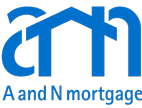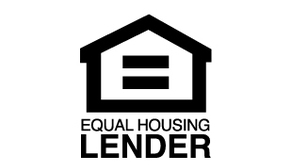Homeownership has always been a part of the American dream — not even the Great Recession of 2008 managed to change that. Still, another housing crisis is something no one can afford; especially with the country still reeling back from the recession triggered by COVID-19.
By all accounts, the average home price in the U.S. has been increasing for a while now; leaving many experts to wonder whether we’re on the verge of another housing bubble.
Considering this, what’s the actual state of the housing market in 2021? Is the country heading towards another painful market crash?
This article will provide you with all of the data you need for an informed opinion!
What is the Housing Market?
A “housing market” is a sum of all supply and demand for homes, in a specific region or country. You can examine the real estate market in a certain Chicago area, in Illinois in general — and the entire United States.
Many factors could go into an evaluation of the U.S. housing market; like housing prices, types of available apartments and houses, how much time homes remain on the market before being sold, etc.
Experts consider all of these (and many more) metrics and try to make predictions on where the market is headed.
As you may have noticed, this isn’t an exact science; otherwise more people would’ve predicted the housing market bubble that sparked the Great Recession.
A “market bubble” is an economic term for a rapid rise in the value of an asset (in this case, homes), followed by a sharp decline.
This initial rise of value is often based on irrational or unclear factors, leading to the subsequent decline that’s called a “crash” or “burst” in the bubble analogy.
In simpler terms, the market value of homes was rising at an unrealistic pace for a long time — and when the markets corrected, the prices abruptly plummeted.
While this is a huge oversimplification — that’s essentially what happened to the real estate market in 2007. But is a housing market crash expected now as well? To conclude, you’ll have to take a look at the U.S. housing market trends in 2021.
U.S. Housing Market Trends in 2021
The COVID-19 pandemic has caused a worldwide recession — negatively impacting almost every country and industry. Across the world, the average GDP loss in major economies has been around 4.5 percent.
However, the U.S. housing market has proven to be a surprising exception. Throughout the pandemic, mortgage interest rates reached record lows. Together with low supply in the housing market, low mortgage rates have hugely elevated demand.
Millennial buyers have been falling over each other to bid higher, sending home prices sky-high in the process. Plus, the global switch to a remote “work-from-home” economic model has also increased home value.
Fast-forward to 2021, and the general mood of the economy has become far more optimistic. The hope of a return to normal life after a worldwide vaccination campaign has spurred economic growth across the board.
The gradual reopening of the economy has been followed by higher investments in the stock market and higher consumer spending — and this positive consumer sentiment has carried over to the housing market as well.
However, the housing boom that the United States has experienced outperformed any expectations — in March 2021 alone, the average home prices have increased more than 11 percent.
This steady trend and stunning growth is precisely what’s led many to wonder if the market is in the midst of a new bubble.
Housing Market Statistics
Before anyone can make a reasonable prediction for the future of the housing market — it’s necessary to take a look at the key real estate metrics as they are now. And according to the National Realtors Association, the median home prices across the United States have jumped by 19% in the past year.
Also, the sales of existing homes have experienced a 20% surge between April 2020 and April 2021. To put that in perspective — 2020 has seen more annual existing-home sales than the past 15 years.
Houses are flying off the proverbial shelf, with an incredible 88% of all homes being sold in less than a month after being listed.
Housing Market Sales Forecasts
This alarmingly high growth of the U.S. real estate market has many people worried about a potential crash — if it does turn out that this has been another bubble. However, a closer examination of the statistics paints a more complex picture.
Housing Supply
The historically low supply of new homes has been one of the biggest reasons for soaring prices; when there are fewer homes available, buyers are ready to pay higher prices to outbid each other.
It’s pretty clear why there aren’t many new houses and apartments to go around. On the one hand, the construction industry was ground to a halt during a large portion of the past year due to COVID-19 restrictions.
And on the other, the CARES Act passed in March 2020 introduced a moratorium on evictions and foreclosures.
While people not being evicted from their homes due to missed payments was humane, it has also dried up another source of houses on the real estate market.
However, these conditions will not last as the construction industry is more bullish than ever in 2021.
Plus, with the end of the COVID-19 foreclosure moratorium in June, home supply is poised to jump in the coming months.
Low Mortgage Rates
The Federal Reserve has been influencing mortgage rates by scooping up as many agency mortgage-backed securities as possible.
But you don’t need to know these details to remember one thing — they’ve indicated that they intend to keep doing this until at least 2022, meaning mortgage rates won’t be spiking sharply for the next year.
According to Fannie Mae, while mortgage rates will start increasing slowly, some winding down in the housing market is expected for the second half of this year.
Still, the small upward drift of mortgage rates won’t cause anything near a market crash — just a small slowdown.
Will the Housing Market Crash or Not?
Considering everything you’ve just read, there’s still one question probably looming large in your mind right now — will the stock market crash, or not? What does all of this mean when you reach the bottom line?
In essence — no, the market will probably not crash.
Yes, the housing market has experienced robust growth. And yes, it has also undergone huge growth in the years before the Great Recession. But the market logic behind these events is fundamentally different.
This time around, the sky-high prices and the red-hot market have been mostly triggered by a lack of houses in inventory. And considering the reasons for this shortage outlined above — you can see this is not a situation that will last, or end abruptly.
The sluggish pace of new construction isn’t a sudden event either; many construction companies were lost during the Great Recession, and the market has been struggling to keep up with demand ever since.
Also, the social distancing measures of the pandemic have reduced the number of open houses, for obvious reasons — leading prospective buyers to grasp every viable opportunity.
So, how does this compare to the last housing bubble and its 2007 crash? The primary drivers behind that bubble burst were far different; chief among them being careless lending practices and an abundance of unqualified buyers.
To be more precise — people that weren’t able to buy a home were buying homes by borrowing money in unrealistically loose conditions. In the run-up period to the Great Recession, there was low demand in the market and an abundance of inventory — opposite conditions from the current situation.
A and N Mortgage Can Answer Your Questions
With prospective homebuyers highly motivated by low mortgage rates, demand is likely to be sustained throughout the year. However, tighter lending restrictions make a 2007 scenario highly unlikely.
Still — if you want to make the right call when it comes to refinancing loans or becoming a homeowner; you need to keep following market trends and always obtain expert advice from experienced realtors. That’s why A and N Mortgage is here to help you.
Do you have any questions about the latest housing market predictions, as a prospective homebuyer? Contact us right away!
A and N Mortgage Services Inc, a mortgage banker in Chicago, IL provides you with high-quality home loan programs, including FHA home loans, tailored to fit your unique situation with some of the most competitive rates in the nation. Whether you are a first-time homebuyer, relocating to a new job, or buying an investment property, our expert team will help you use your new mortgage as a smart financial tool.







